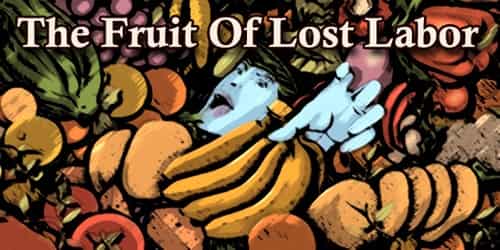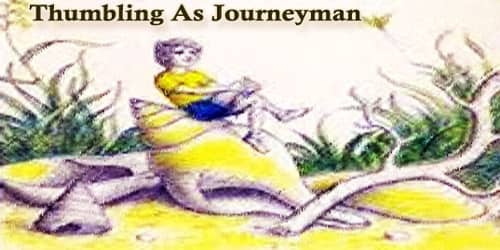Once upon a time on an island in the Caribbean Sea, there lived a man known to all as Papa Lorne. No one knew much about Papa Lorne, though he was friendly to everyone. His eyes sparkled, and his smile was as wide and as bright as the crescent moon. He loved to sing and tell stories, but he never told others where he had come from or why he was called Papa Lorne. The people simply knew him by that name.
The children loved Papa Lorne. They thought he must be as old as the ocean. They loved his long gray curls and the deep lines in his face. They loved especially to watch Papa Lorne’s work.
This is what he did: Every year Papa Lorne walked the length and breadth of the beach, carrying great wicker baskets. In the baskets, he collected sticks and stones and shells and bones and anything else he could find. He walked for miles filling those baskets. And then he set to work, stacking all that he found. In this way, every year, Papa Lorne built a seawall.
The children called him Master Builder, for he never stopped working, and not a single stick or stone or shell or bone ever toppled from its place in the wall. The children loved to watch as the wall grew taller and stronger and longer under Papa Lorne’s sure touch.
“A seawall is a precious thing,” he said to the children. “It protects our beach from washing away too quickly.”
One girl especially, named Ruth, watched closely as he worked. “Why is it so precious?” Ruth asked. She knew the answer, but she loved to hear Papa Lorne tell her why.
“This seawall is our salute to the sea. It shows the sea that we, too, are strong and firm.”
And sure enough, every year Papa Lorne would complete his seawall and it would stand facing the ocean, sturdy and tall and proud.
“It’s beautiful,” the children clapped, but the grown-ups from the village shook their heads. “It’s a beautiful folly,” the women said. The men sighed. “Lost labor,” they said.
“You know what’s going to happen to Papa Lorne’s wall, don’t you?” Ruth’s father asked every year, but Ruth plugged her ears. She did not want to hear his predictions.
Still, no matter how tall and sturdy and proud Papa Lorne’s wall was, every year the late summer storms rolled in and the waves rose up taller than 10 men, and every time those stormy waves toppled Papa Lorne’s wall. Those sticks and stones and shells and bones and everything else washed away.
Then Papa Lorne would start again.
“You need something to hold your wall together,” the men said, but Papa Lorne just shook his head and laughed. “What I need is ‘unobtainium,’” he joked, “and ‘unobtainium’ is that which no one can have!”
One year, Ruth raced to the beach during a summer storm to see all the sticks and stones and shells and bones tumble and to watch Papa Lorne wave farewell to his wall.
But this year, as the wall washed away, Ruth saw a tear in Papa Lorne’s eye.
She had never before seen a tear. “Why are you sad, Papa Lorne?” she asked.
Now Papa Lorne’s wrinkled cheeks were wet with tears. “My child, I’m too old now to build another wall. Your parents were right to call this a folly.”
Ruth felt her heart almost burst, and she turned and raced home. She rushed into her back yard and looked up at the setting sun, and she looked at her orange tree. And at the sight of those sweet oranges, Ruth remembered something. Every year the oranges fell to the ground, but the next year the orange tree was ripe and filled with oranges again. She looked up at the sun. That rose each day, and set, and rose again. So did the moon. And the tides rolled in and out again. Ruth knew just what to do.
She danced happily, singing thanks to her orange tree, and then she ran to gather all her friends. Together, the children began to walk the beach, collecting sticks and stones and shells and bones and everything else they could find. By nightfall, they were at work building a wall, and at dawn the next day, when Papa Lorne awoke and poked his head out of his hut, he could not believe the sight that greeted him. There stood a seawall made of sticks and stones and shells and bones. And it was as tall and sturdy as the walls he had built.
Papa Lorne wept with joy.
“You see, Papa Lorne,” Ruth said, “it doesn’t matter what your wall did not last. You taught us to build walls. What you have taught us will last.”
Ever since that day, all those children have taught their children, too, how to build a wall. On that island, the orange trees grow, and the sun rises and sets, as does the moon and the tides roll in and out again. And on that island there always stands a seawall known as Papa Lorne’s wall.
















